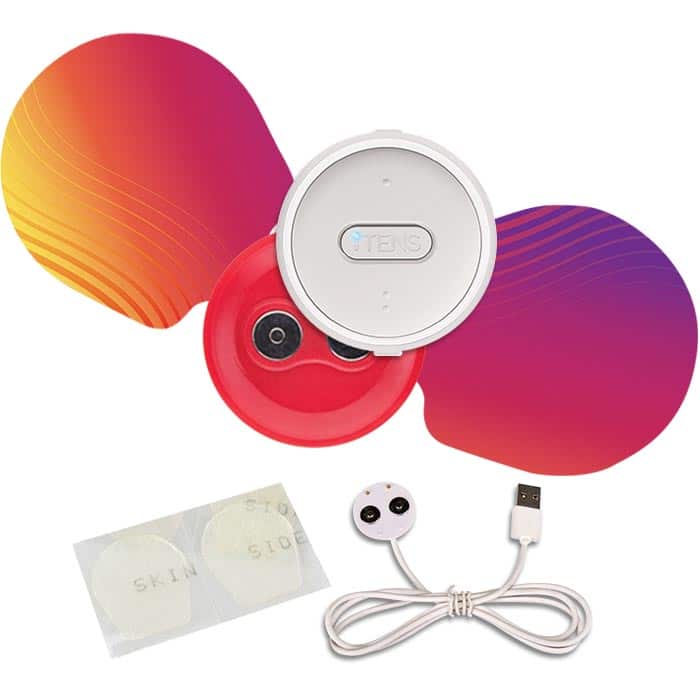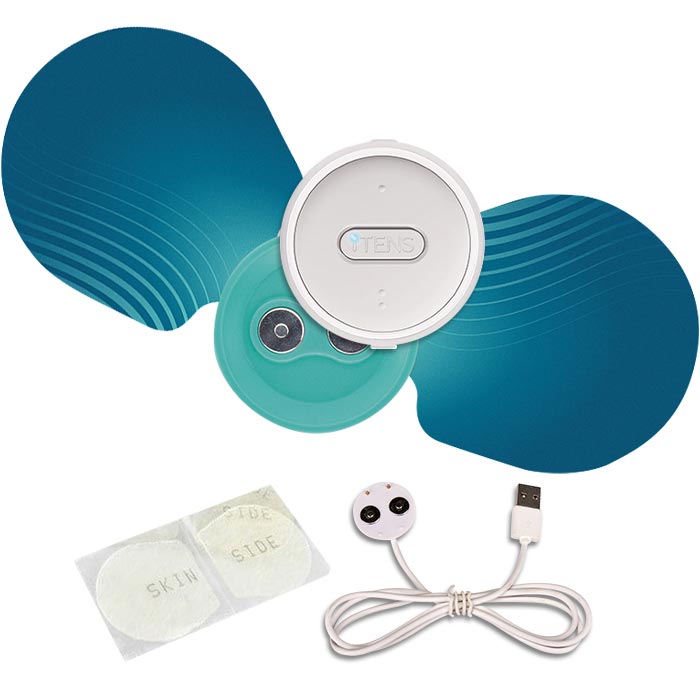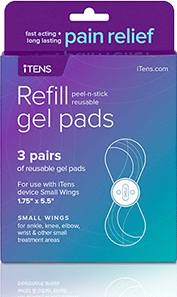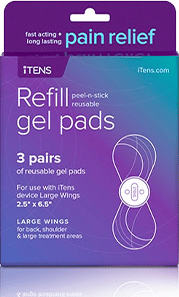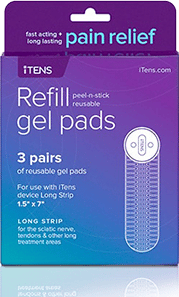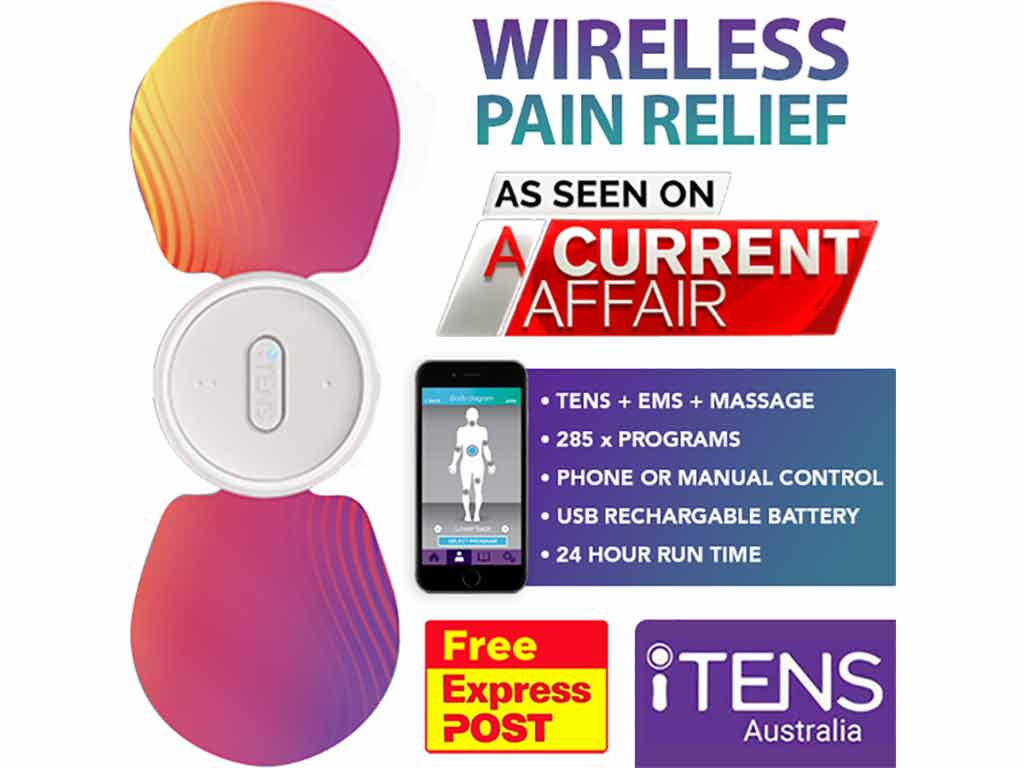
Transcutaneous Electrical Nerve Stimulation (TENS) is a method of pain relief. It is both safe and effective when people use it properly. TENS machine for physiotherapy works by blocking pain signals and triggering the release of endorphins, providing effective relief. Individuals need to consult with a health professional before using the machine to ensure they are using it correctly. They should also read and understand the instruction manual that comes with the device.
People often experience pain or discomfort due to injuries, surgeries, or underlying health conditions. While traditional methods like pain medicines can help relieve the symptoms, they can have side effects in the long run. Therefore, many people seek alternative treatments to avoid these risks. One of these methods is physiotherapy TENS. This article will present a TENS device for physiotherapy, including its benefits and the conditions it can treat.
What is a TENS Machine for Physiotherapy?
A TENS machine for physiotherapy is a portable device that can provide symptomatic pain relief. It typically consists of a control unit and sets of electrodes. The adhesive electrode pads send electrical currents to stimulate the nearby nerves to reduce pain. Moreover, there are two types of TENS devices that individuals can use: standard and wireless.
A standard TENS machine has a handheld push-button remote and wires connecting to the electrode pads. On the other hand, a wireless TENS machine utilises Bluetooth technology to connect to a smartphone app. It is popular among individuals who prefer convenient and on-the-go pain management. Nevertheless, both types deliver adequate electrical stimulation.
There are many options available on the market for TENS machines. People may purchase these products online, in pharmacies, or in medical supply stores. The price range is between $30 and above $300, depending on its features. Interested individuals may read the customer reviews and consult healthcare professionals about which product suits their needs.
How It Works
- The electrical signals from TENS stimulate sensory nerves, interfering with the transmission of pain signals to the spinal cord. This occurs through the pain gate mechanism, essentially blocking the pain messages from reaching the brain.
- TENS can trigger the release of endorphins, which are the natural painkillers from the body. Endorphins help to reduce the perception of pain and induce analgesic effects, providing relief from discomfort and soreness.
- Furthermore, TENS can enhance blood circulation in the targeted area. It helps deliver oxygen and nutrients to sore muscles, promoting healing and reducing stiffness. This boost in circulation also aids in flushing out toxins and reducing inflammation.

Benefits of Using a TENS Machine for Physiotherapy
A TENS machine for physiotherapy can provide several benefits to users. Firstly, it can provide targeted muscle stimulation. This can be particularly helpful for patients recovering from injuries or surgical procedures. The targeted approach can help the patients regain muscle strength and mobility in specific body areas. Then, this leads to a faster and more effective recovery.
Secondly, TENS can help improve muscle coordination and function. By encouraging the muscles to relax in a controlled manner, these units can help restore proper muscle movement. This is essential for patients to regain their full range of motion and functionality. This can be particularly useful for patients recovering from neurological conditions.
Lastly, TENS is a natural method of pain relief. It does not require invasive procedures, such as injections and surgeries. Additionally, users do not have to take medications with the therapy device. Instead, it utilises gentle electrical pulses to produce muscle contractions. Also, sensory nerve stimulation aids in reducing pain intensity.
Are There Potential Side Effects?
TENS may lead to potential side effects, including skin irritation. Some individuals might experience redness, itching, or discomfort at the site of application. Healthcare professionals advise patients to monitor their skin closely during and after TENS therapy sessions. They may also advise using hypoallergenic electrode pads.
Additionally, some individuals may experience muscle spasms during electrotherapy. They can happen when the electrical stimulation triggers the muscle to contract too forcefully. Moreover, TENS can interfere with metallic implants, raising the muscle tissue temperature to damaging levels. If side effects persist, it is advisable to seek medical help before they become a major concern.

Types of Conditions Treated with TENS Machine for Physiotherapy
A TENS machine for physiotherapy can lessen the pain of various treatable conditions. One type is chronic pain conditions. These are health issues that cause persistent pain, such as osteoarthritis pain, cancer pain, and bursitis. Chronic pain sufferers can significantly benefit from using a TENS device to help manage their symptoms and improve their quality of life.
In addition, electrical nerve stimulation can manage acute pain conditions. These are sudden and intense pain episodes that injuries or surgeries typically cause. Some examples are labour pain, sports injuries, and postoperative pain. TENS machines can help reduce the intensity of acute pain or discomfort and provide relief during recovery.
Also, TENS can aid in musculoskeletal pain conditions. These affect the muscles and joints, including neck pain, leg pain, back pain, and knee pain. Furthermore, the electrical impulses from TENS can target neuropathic or nerve pain conditions. These occur when there is damage or dysfunction in the nervous system, such as diabetic neuropathy, sciatica, and carpal tunnel syndrome.
Signs to Seek Professional Help
When experiencing a pain condition, it is crucial to know when to seek professional help. If the pain persists despite rest and home remedies, it is time to consult a healthcare provider. Professional guidance can help accurately diagnose the condition and provide targeted treatment to alleviate discomfort and prevent further damage.
Furthermore, if the pain interferes with daily activities or significantly affects the ability to perform tasks, seeking professional help becomes imperative. A healthcare provider can offer personalised advice on modifying activities, prescribing appropriate exercises, and recommending ergonomic adjustments. By seeking professional help early on, individuals can effectively manage their pain condition.
Conclusion
In conclusion, using a TENS machine for physiotherapy offers targeted muscle stimulation, aiding in faster recovery from injuries or surgeries. It helps improve muscle coordination and function, which is crucial for regaining mobility, especially for patients with neurological conditions. Most importantly, it offers natural pain relief without invasive procedures or medications, using gentle electrical pulses. With its convenience and effectiveness, a TENS machine is a valuable tool for enhancing physiotherapy outcomes.
There are various types of pain conditions that TENS can treat. These include chronic, acute, musculoskeletal, and neuropathic pain. It offers relief and improves the quality of life for those suffering from these ailments. However, if pain persists despite home remedies or interferes with daily activities, seeking professional help is essential. Healthcare providers can accurately diagnose the condition and provide tailored treatment plans to manage pain effectively. By taking proactive steps, individuals can regain control over their health.



